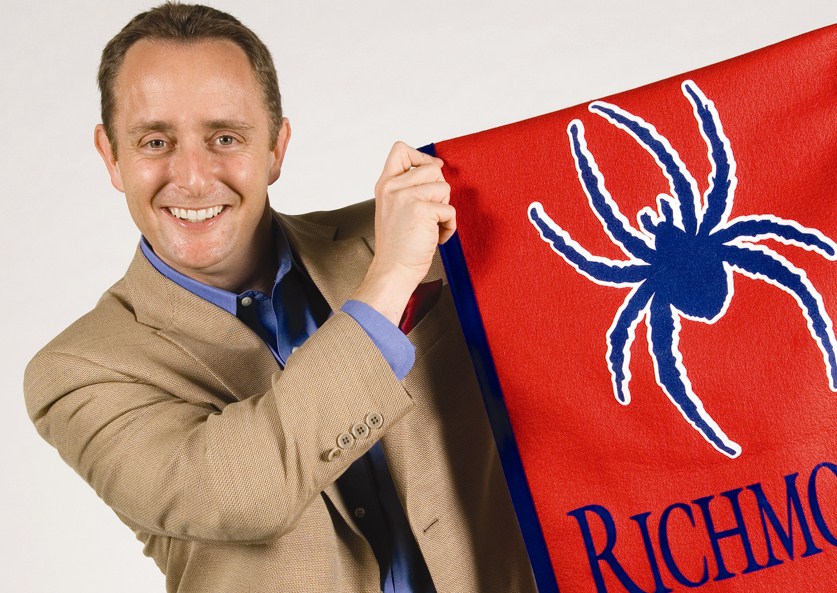|
|

| July 2008 Servant Leader Heads University's Alumni Association for 2008-09 The University of Richmond Alumni Association board of directors has elected several Jepson graduates to the executive committee. Tripp Perrin, '95, Kelly Gribbin, '02, Ken Kraper, '05, and Samuel Kaufman, '99, began a three-year board term on July 1. Perrin is the first Jepson graduate to be elected president of the executive board. Kaufman will serve as vice president for finance, Kraper as vice president for university relations and Gribbin as vice president for membership. More Below is a Q&A with Perrin on what his goals are as president and how his Jepson education has prepared him for the task.
You are the first graduate of the Jepson School to lead the University's alumni as president. What lies ahead? One of our key projects will be finalizing our strategic plan over the next several months. The executive committee members will also be finding ways to strengthen chapter programs across the country and developing specific tactics for acting as a resource to them. Ultimately, the big goal for this year is to increasingly engage alumni in the life of the University and give them more opportunities to get together in the regions where they live to celebrate the Spider spirit. More frequent and relevant communication will benefit the University by continuing to foster two-way dialogue between the University and alumni. When one of our alumni has an opinion, we want him or her to get involved, so we need to be in position to tell people how to get involved. We would also like faculty and students to be part of this dialogue so they are better informed to pass on information to alumni. Another project will be looking at the board structure and size to make sure we are in position to maximize the service and talents of our board members. How has your connection to UR alumni benefited you? Being on the board has enabled me to interact with people that I would not have interacted with and stay connected to a large number of alumni across the country. I'm amazed at all the positive things that are happening on campus every time I visit. I'm proud to be a part of it and glad for the education the University of Richmond has given me. The Jepson School has taught me that I'm on the board to serve. People get very busy, and I know there are days when you don't feel like doing one more thing. Whenever I feel like this, I think back to my Jepson experiences and realize I'm there for a cause. For you, what was the Jepson program's greatest strength? The Jepson experience permeates throughout everything I do. I recently took a personality test that revealed that my greatest strength is communication and strategic thinking. At Jepson we had to work on projects in groups, and this is how the real world works. In whatever you do it's important to be aware of effective leadership traits. Good communication gives you the ability to motivate people and an ability to think critically and strategically allows you to lead an organization in the right direction by getting people excited about a cause or vision. What would you like people to know about the Jepson program? Servant leadership is one of the things people don't know about - that's what makes the University so special. The concept stuck with me after I graduated. The number of hours students volunteer is truly amazing. There aren't very many people who know great leadership and understand it. I've come across very few great leaders in my life. Leadership almost sounds too lofty when you're in the middle of the Jepson program, but when you start working you realize the difference it makes. How would you describe servant-based leadership? I would describe it as working for a cause outside of personal financial gain. You do it because you believe that you are benefiting those generations after you. It means taking a long view. Things move at a slower pace in an academic setting than they do in the business world and it makes it all the more important to set very specific and achievable goals. In the Jepson program, the whole notion of servant-based leadership is instilled in you. I have to admit that I don't think the whole Jepson experience crystallized for me until five or six years after I graduated, when I was able to interact with different people and get different experiences. I have a perspective now on what it means to be a great leader and on why it's important to study leadership.
|
 Tripp Perrin, '95
Tripp Perrin, '95